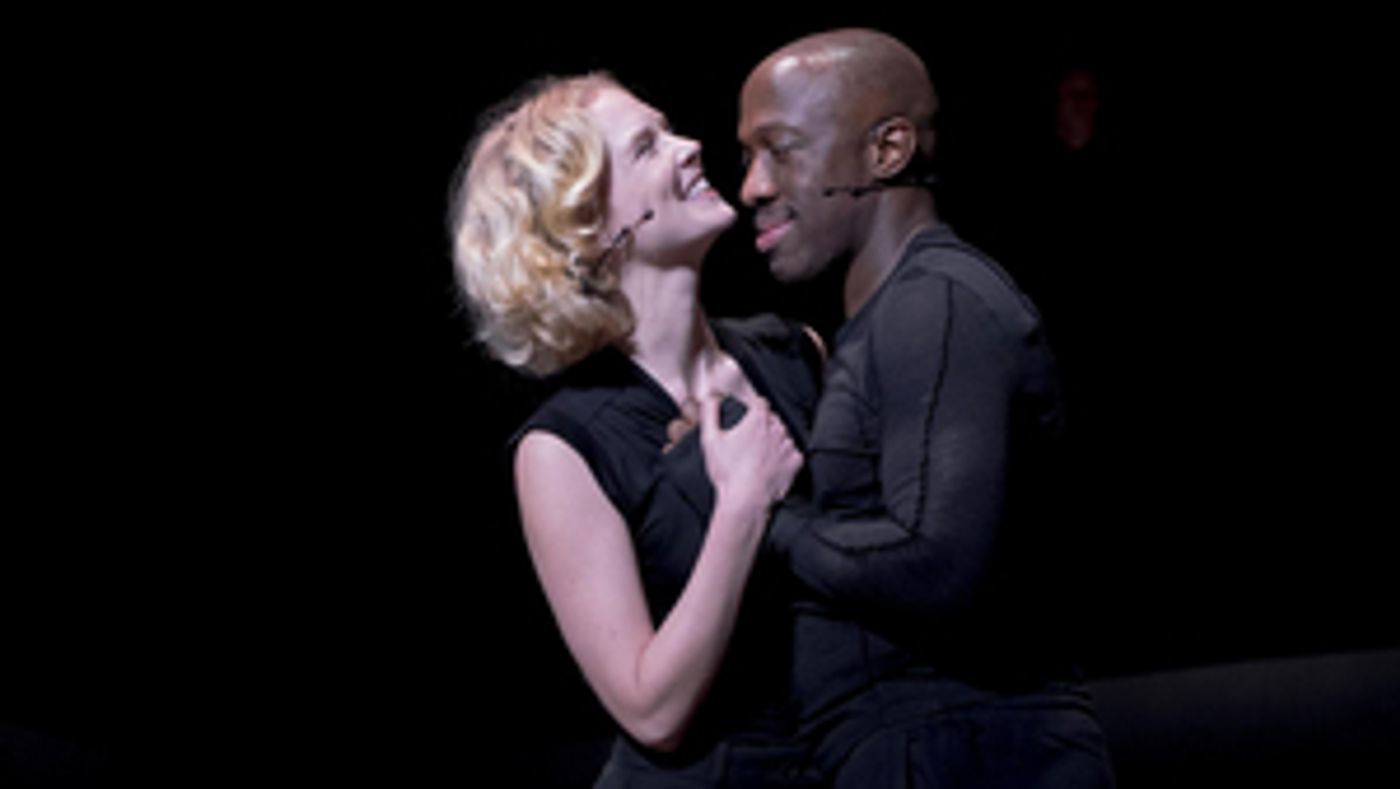Review Roundup: What Did the Critics Think of Clint Dyer's OTHELLO?
Giles Terera and Rosy McEwen star in the new production at the National Theatre

Clint Dyer's production is the first Othello from a black director at the National. Starring Giles Terera as Othello and Rosy McEwen as Desdemona, the Shakespearean tragedy opened last night (30 November).
What did the critics think of the new revival?
Alexander Cohen: BroadwayWorld: From the moment where he muscles onto the stage, Giles Terera's Othello has a warrior's concretene physicality. His presence is daunting, happy to exhibit his dexterity with a training stick and throw a few strikes at a punching bag. Jealously induces a physical as well as a mental metamorphosis, the warrior's composure is reduced to jittery psychosis. There is a painful resonance to this: BAME communities are at higher risk of developing mental health problems in adulthood than any other ethnic group in the UK.
Sarah Crompton: WhatsOnStage: Dyer is the first Black director of the play in a major British theatre and the depth of his thinking about its meanings is clear in every scene. First, we see Othello the warrior, displaying his warlike prowess in the centre of Chloe Lamford's monochrome stage, starkly lit by Jai Morjaria. Then we realise how quickly applause and gratitude can turn to disgust, as Paul Hilton's black-shirted, Oswald Moseley lookalike, slyly eggs on the equivalent of a lynch mob, their bright brands burning to discover if Desdemona has indeed escaped her father's house to marry her love and commit - in Shakespeare's shocking phrase - "treason of the blood."
Arifa Akbar: The Guardian: A new vision does come though, breathtakingly so, in a radical half-hour at the end when it feels as if Dyer is revealing another play beneath the story we know about jealousy and mistrust in which Othello is a flawed hero who commands our sympathies. This other play is about the tragedy of domestic violence. The women are not reduced to victims here while the men, including Othello, are controlling, toxic abusers. It is an almost obvious interpretation, once we have seen and heard it, yet it makes the play feel utterly new.
Nick Curtis: Evening Standard: Almost everything here is harsh and stark. Iago mentally and physically abuses his wife Emilia (a bruised, affecting Tanya Franks). Chloe Lamford's set, of steeply raked steps on three sides, suggests a parade ground and a gladiatorial arena. The supporting players who gather to lynch Othello in the opening scene become coldly hostile spectators or emblems of the madness seeded in his mind.
Clive Davis: The Times: In the end, the cascade of arresting visuals wins you over. Clint Dyer's production - the first Othello from a black director at the National - isn't particularly subtle about the way it makes race the central theme, but as a visceral piece of theatre, it grabs you by the throat and shakes and shakes until you submit.
Othello is at The National Theatre until 21 January 2023
Photo Credit: Myah Jeffers
Reader Reviews
Videos
